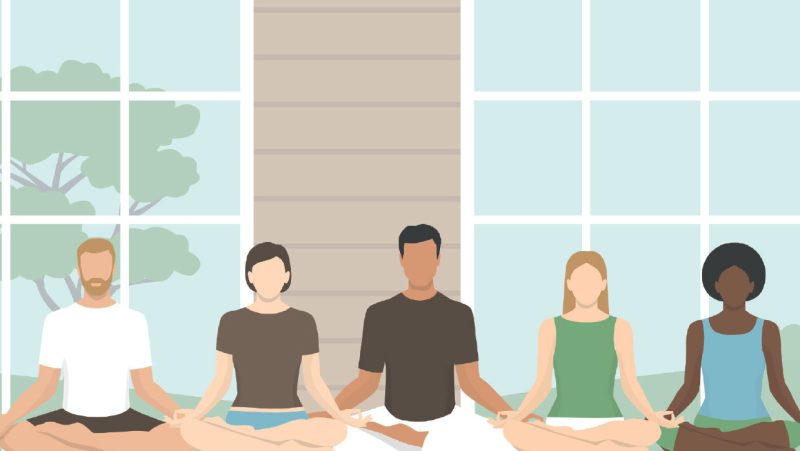
How Does Yoga Help With Self-Care?
Health experts recommend yoga as a self-care activity for its all-encompassing health benefits - By Beth Rush
Reading time: 4 minutes
Yoga has become a popular alternative to a traditional exercise routine. Many women develop an interest in the practice for many good reasons, ranging from physical to neurological health. It may be right for you if you're looking to integrate some type of movement into your life. Learn about the different benefits of this ancient practice in self-care.
1. Boosts Immune System
Since yoga is a form of movement, it has the same immunity benefit as your regular gym training. One study found that yoga can reverse the expression of inflammatory mediators, which are molecules the cells release in response to an infection or injury. It also helps maintain the natural balance and physiological functions of multiple bodily systems related to immune response.
2. Supports Healthy Weight
The sequence of poses in sun salutations combines strength, endurance and stretches that can pass as equivalent for exercise. Unlike a standard weight loss program, yoga has many flows, from restorative to power, to suit a complete beginner and regular practitioner. If you want to lose weight, it offers all-body movement training to keep your body mass index at a healthy limit.
3. Helps Manage Stress and Anxiety
As a mindfulness practice, yoga has positive mental health benefits and experts recommend it to those with stress and anxiety. Based on research, practicing yoga was an effective self-management strategy for coping with anxiety, stress and depression during difficult times. It can help you control feelings of unease.
4. Promotes Calm and Relaxation
The emotional benefits of yoga can promote feelings of calm and relaxation for people with existing mental health concerns. That’s why experts push it as a therapy for stress management. One study on children living with autism spectrum disorder found that five weekly sessions of yoga lasting for 15 minutes each practice allowed them to feel calmer and more relaxed. It’s crucial for people living with mental health challenges to remain at ease to manage their condition.
5. Improves Overall Cognitive Ability
What’s more, doing your downward dogs or mountain poses boosts overall brain health. A review of all 11 studies revealed that practicing yoga had a positive effect on the structure or function of many brain areas, such as the hippocampus, prefrontal cortex, amygdala and brain networks.
Researchers concluded it may help mitigate age-related or neurodegenerative cognitive decline. Use yoga as a self-care tool to upgrade your physical and mental health.
6. Enhances Mood
Apart from the emotional benefits of yoga, it can also get rid of negative vibes and lower your levels of stress hormones. Doing and engaging your whole body in the poses increases the production of endorphins that make you feel good. As a result of physical activity, more oxygen is carried to the brain, improving circulation. All of these have a positive impact on your mood.
7. Delays Aging
Research also stated yoga can reverse the aging process. A 12-week practice of basic yoga, breathing exercise and meditation triggered positive changes in the levels of biomarkers of cellular aging, such as oxidative stress markers and telomeres.
Telomeres are structures required for cell division and are hallmarks of biological aging. They naturally shorten with age. Shorter telomeres are associated with an increased risk of diseases and decreased life span. Doing yoga can help preserve the telomere length and other markers of aging.
8. Supports Fertility
Stress is linked with inflammation and many adverse health outcomes, including a decline in fertility. Although more research is required in this area, yoga showed a promising result in supporting a healthy reproductive function by minimizing stress and restoring balance to the hormonal profile.
By doing the poses, you have better control over managing stress and simultaneously promote proper functions of various physiological systems.
Yoga Is a Tonic for Well-Being
What makes yoga unique and popular is that it combines mindfulness with exercise and relaxation, making it a perfect movement activity for people seeking multiple benefits from a single fitness session. It's also customizable based on your existing ability level, from easy to highly intense.
Another good point that makes yoga more interesting is its different flows, from vinyasa [one breath, one movement rhythm] to restorative and power yoga — you can choose a sequence that suits your current mood and ability. There's no doubt yoga and other self-care tips can improve your well-being.





